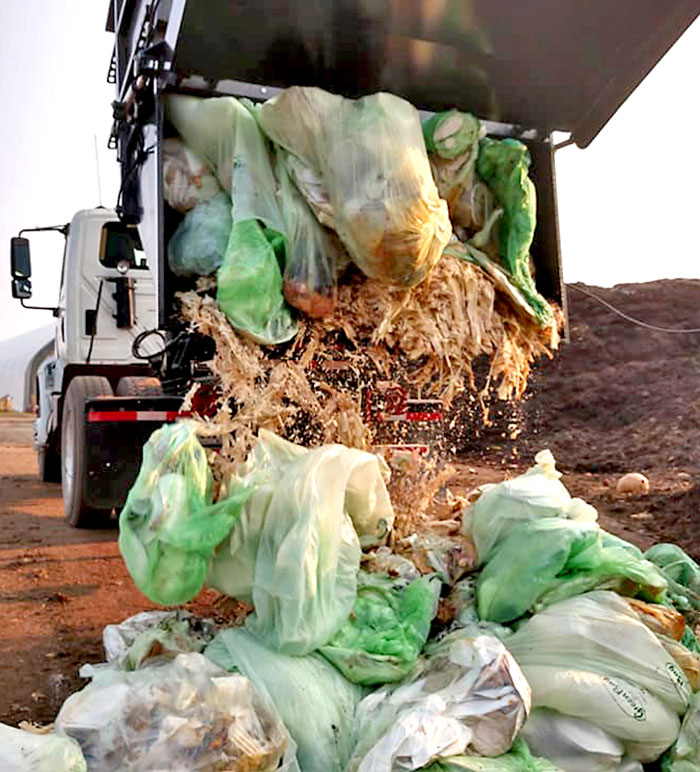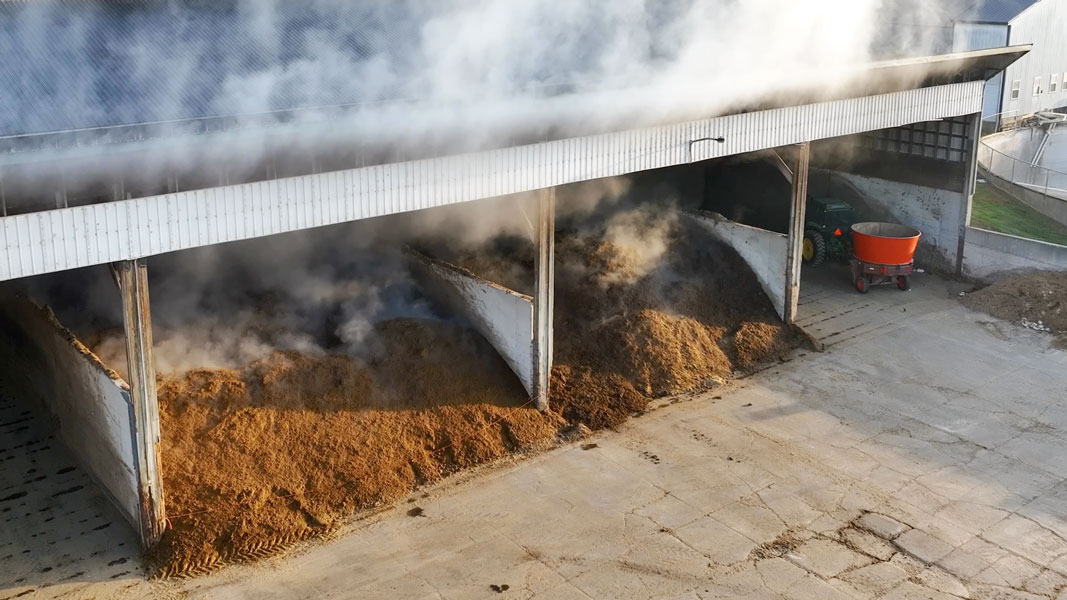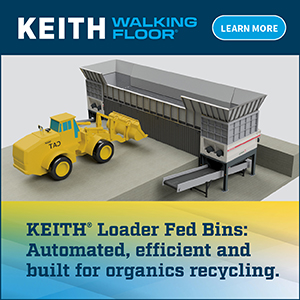Top: The new Composter Innovator Program engages compost manufacturers to help shape the future of the industry. Photo courtesy Closed Loop Partners
The Composting Consortium, a collaboration managed by the Center for the Circular Economy at Closed Loop Partners, is expanding its mission to create more food waste composting capacity in the U.S. by creating two new platforms for direct stakeholder engagement: The Composter Innovator Program and the Municipal Partner Platform. “To thoughtfully scale organics management, key stakeholders must collaborate,” notes a Composting Consortium press release. “This helps ensure that composting programs and infrastructure are developed to meet the diverse needs of stakeholders across the organics value chain — from composters, to cities, residents, businesses and more. Our two new platforms will engage directly with municipalities and composters across the country to support the scale up of robust composting infrastructure.”

Food waste, collected in BPI certified compostable liners, being unloaded at Better Earth Composting in Peoria, IL. Photo courtesy Better Earth Composting
The Composter Innovator Program is free and open to full-scale compost manufacturers in the U.S. that are willing to commit time each year to help shape the future of the industry on topics like contamination, policy, financing, and scaling food waste composting infrastructure. Facilities can vary in size, capacity, region, technologies, and composting methods. Included will be composters who accept food scraps and compostable packaging, and composters who accept yard trimmings and are considering adding food scraps to their facility. The first project is a collaborative analysis to identify the cost of processing compostable packaging at compost facilities receiving these materials. The Consortium will use this data to offer insights on how Extended Producer Responsibility (EPR) funds can support composting infrastructure in line with EPR plan objectives, aiming to increase funding for the composting sector.
The Municipal Partner Platform is a free-to-access platform for city officials focused on sustainability, zero waste and organics management. The platform connects officials with leaders nationwide to share and discuss best practices in starting and expanding organics collection and infrastructure programs. Municipalities of all sizes and stages of development are invited to reach out to the Composting Consortium to explore ways the network can help them achieve their goals of diverting food waste from landfills.
The platforms were launched simultaneously with the release of the Consortium’s new blueprint to guide municipal leaders in zero waste and solid waste and sustainability in establishing and scaling composting infrastructure and organics management programs across the country. How Organics Diversion Can Help Achieve Zero Waste Goals: A Blueprint for Action, co-authored with Eco-Cycle, based in Boulder, Colorado, presents a clear and actionable framework that covers:
- Policy and Program Expansion for Diverting Food Waste: This section does a deep dive into effective strategies for policy development. It explores methods to incentivize resident and business participation, while outlining pathways to maximize food waste diversion from landfills.
- Setting Up Programs and Infrastructure: A clear roadmap for establishing new organics programs details best practices for collection methods, explores various processing options (composting facilities, anaerobic digestion), and offers guidance on navigating the critical process of contracting with composters.
- Communication with Program Participants: Recognizing the importance of resident and business engagement, a comprehensive communication toolkit is provided. It outlines strategies for educating participants on proper sorting techniques, maximizing program participation, and fostering long-term program success.
The Composting Consortium invites U.S. municipalities and composters to join the newly launched platforms that support municipalities and composters in scaling organics infrastructure. Download the full blueprint here.














